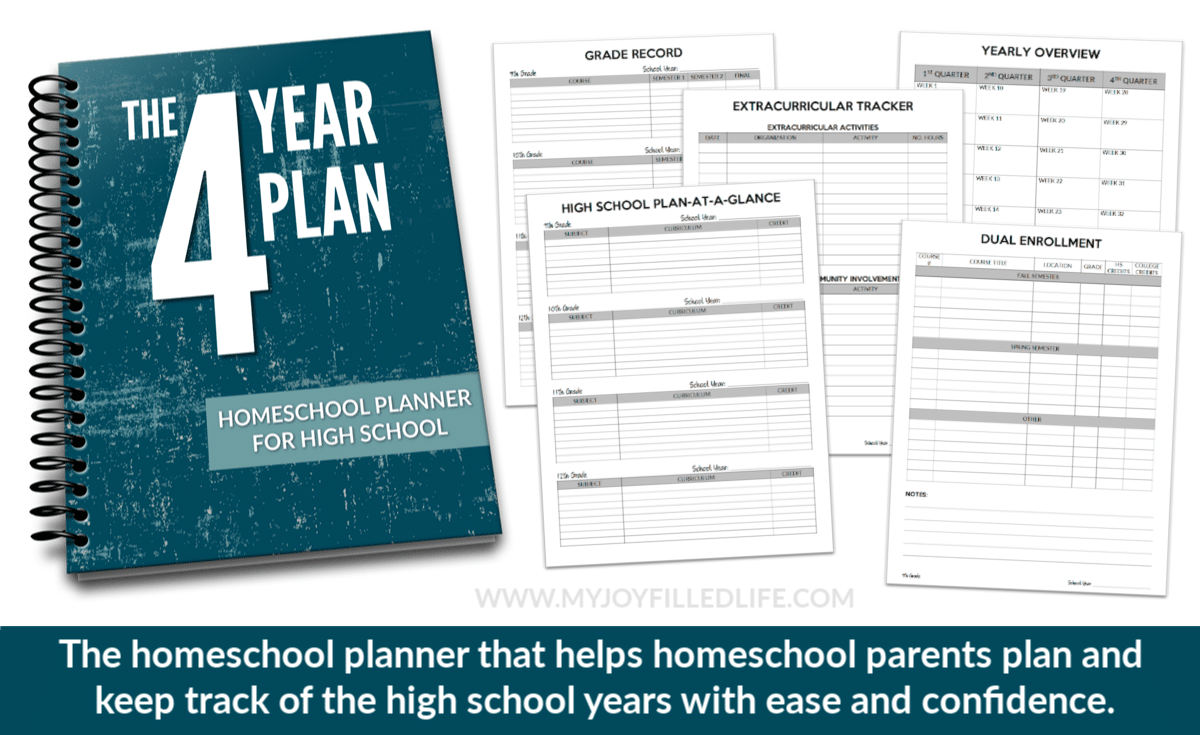This is a post from Adena Foster of AdenaF
It’s the end of the school year for most families right now and I know most are putting away the textbooks and preparing for summer vacations. But soon, it will be time to start planning your next school year. Most times, that might include adding another student. I know when I was teaching my two oldest, I felt like homeschooling was a comfortable fit. But then adding in that third child? I wasn’t sure I could juggle teaching three levels every day.
When I was pregnant with my third child, I was blessed to discover unit studies. I started off with Konos and was so lucky to actually live a few miles from their rep. I met with her many times as she showed me how she taught her children, began a co-op, and still had time for extra-curricular activities. She was the one that taught me the specifics of multi-level teaching.
Subjects
Some subjects should be taught individually, unless you are lucky enough to have more than one child at the same level on those subjects. The subjects that I have always taught individually are phonics and math. Both of these subjects are sequential so you really can’t go out of order without creating some chaos.
Bible, History, Science, Art, Writing, and any other “extras” are pretty much taught together. I have found that it works best for our family to teach history one semester and science the next semester. Sometimes I use unit studies which is based on a subject and then creative writing, art, reading, etc. is centered around that topic. Again, I will choose history based unit studies one semester and science based studies the next semester.
If we are not doing unit studies, we will use a curriculum that can easily be adapted for multiple ages/grades. We have used Story of the World, Apologia Science, My Father’s World, Notgrass, Adam to Messiah, and a few others successfully.
How it Works
This is a very basic way of how I teach multiple levels at once. Of course, you might have to tweak it depending on the ages of your children and their capabilities.
- Read the lesson. Usually I will read the main lesson. I like to do it so I can ask questions along the way to make sure that each child comprehends the lesson. Some texts actually will have the lesson broken down into older or younger children. Since most of my children now fall into the “older” category I always read from that perspective and then offer more explanation if needed so that my youngest can understand.
- Assign age appropriate tasks. If there are additional books to read (like time period fiction) I will have my older children read aloud to my youngest. If my youngest gets distracted, I will often find coloring pages of what we are learning about for him or have him build something with Legos to go with the lesson. When we are doing science experiments, the older boys tend to actually do the experiments and we have my youngest gather the materials and always allow him to guess first what the outcome will be. When I assign creative writing assignments, the older boys will help the youngest or sometimes they will all participate and write a short skit together. Many extra activities are not age related – listening to music, watching a video, art/craft projects.
- Review. You want to be sure that each child is actually learning. This means you might need to add extra reading material, research, or writing assignments to “beef up” a lesson. I try to have my older children help my youngest to make a lapbook. I can tell if they remember the key points of the lesson if everything is included in the lapbook. Sometimes I will steer them in the direction of what I want included in it. If we don’t make a lapbook, we will do oral discussions. I will have them tell me what they learned, what they enjoyed most, and ask if they have any questions. Occasionally, I will make a little quiz for them but I really don’t like quizzes. I can usually tell by the discussion if they have learned enough to move on to another lesson. If at all possible, I love to include field trips that relate to the lesson as well.
Scheduling Your Day
I hesitate to even include this because what schedule works for one family will not always work for another. You will be in a different season if you have a newborn, have outside jobs, caring for an elderly parent, moving, etc.
I have my older children wake up before my youngest. We go over what is to be done that day and they each go work on their own individual assignments. This includes Math and their own subjects of interest – guitar, computer programming, foreign language (which would be great to teach together except naturally they want to learn different languages!), and whatever else they choose. My older two boys are completely different from each other so even though I could teach more subjects together for them, they always have opposite interests.
Once the older boys have started their work, I wake up the youngest and he gets started with his one-on-one lessons of phonics and math with me.
Most days, our multi-level subjects start after lunch unless things are going exceptionally smooth.
Multi-level teaching has been a lifesaver for me. I can’t imagine being able to give individual instruction to multiple children every day, unless our school lasted until 6pm!! Also, it has been such a blessing when my older ones could step in and take charge of the lesson when I was busy taking care of a newborn. It might not be something that you will always do, but it can really help keep you sane during some seasons of your life.





